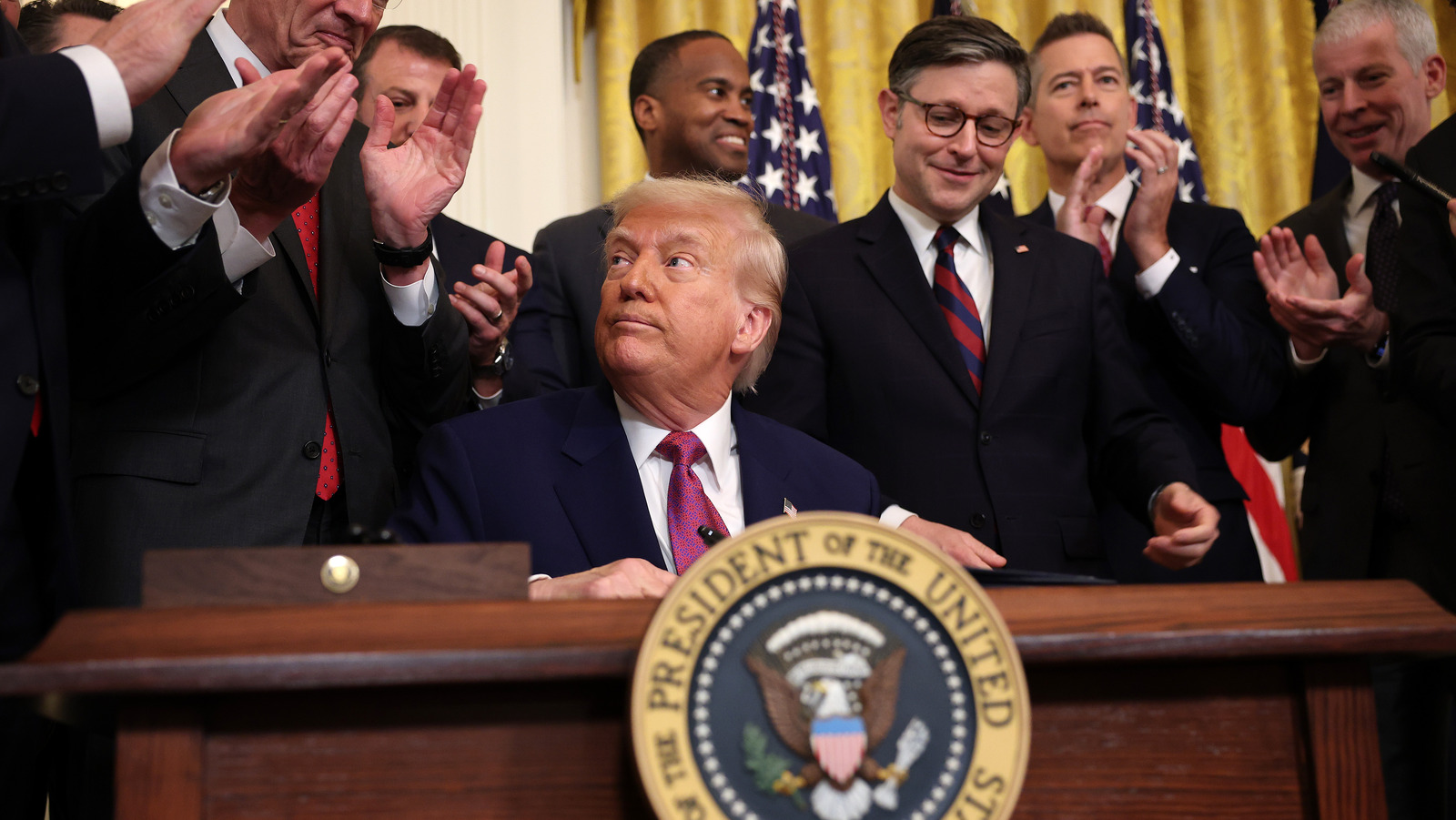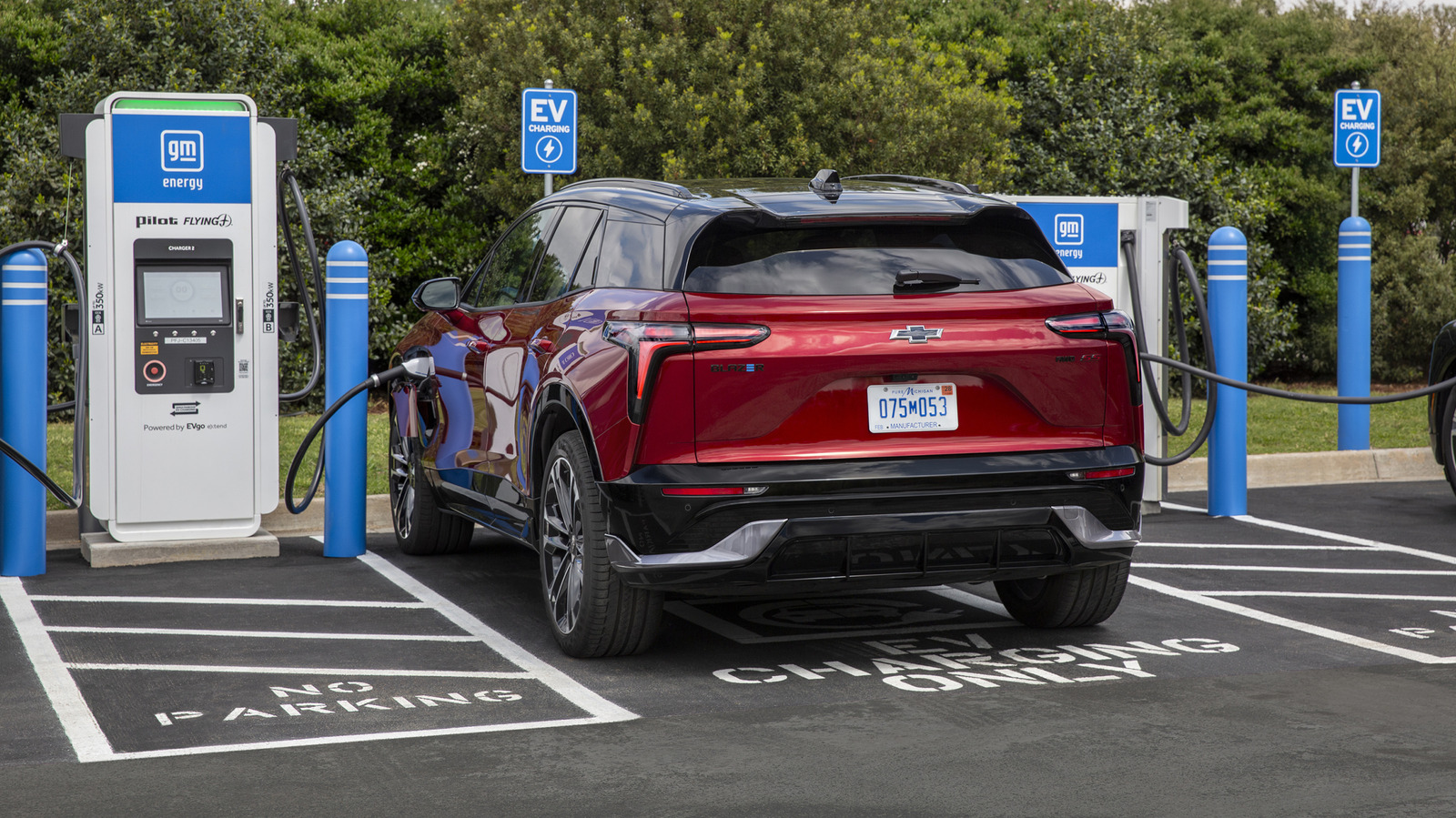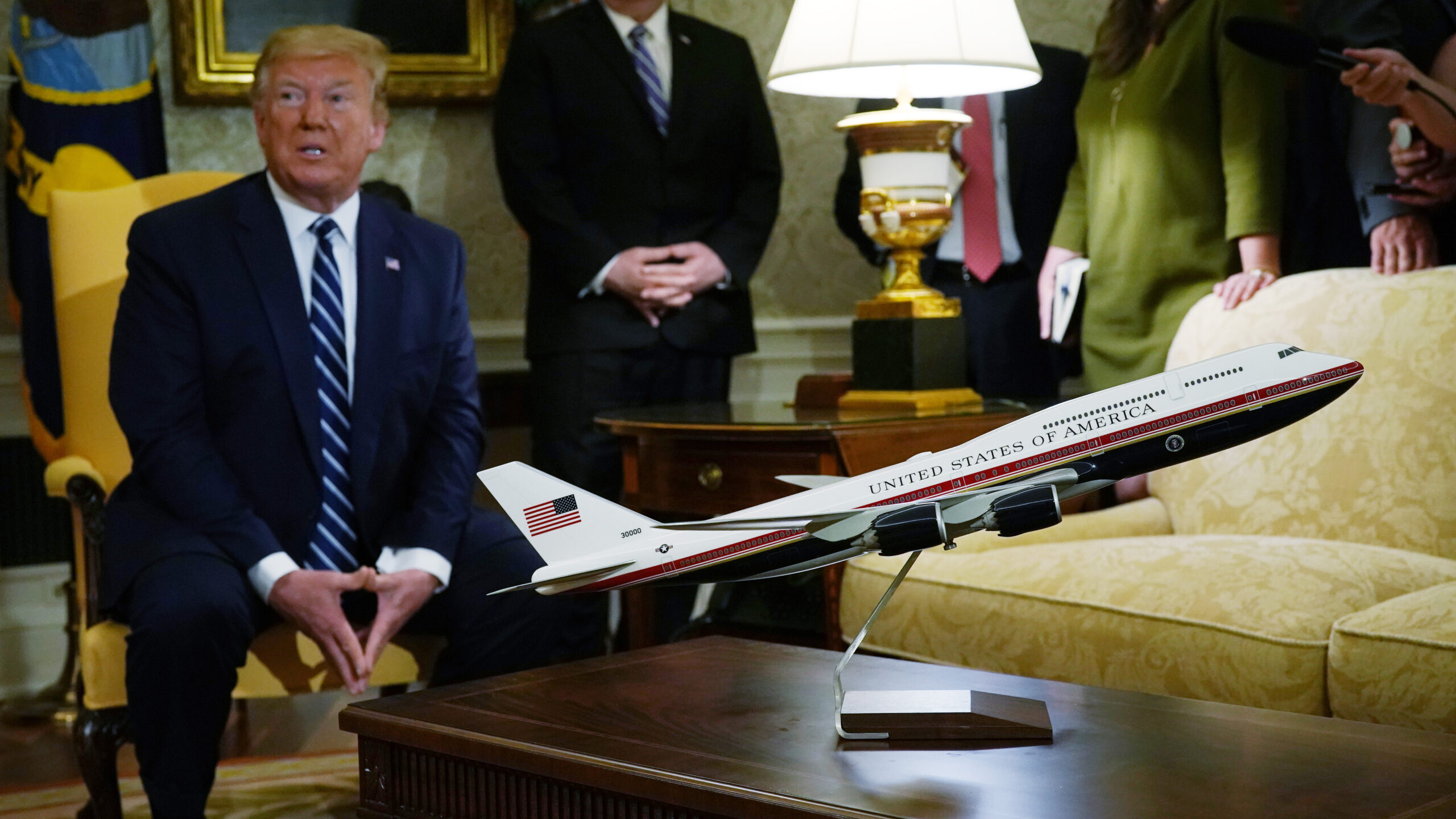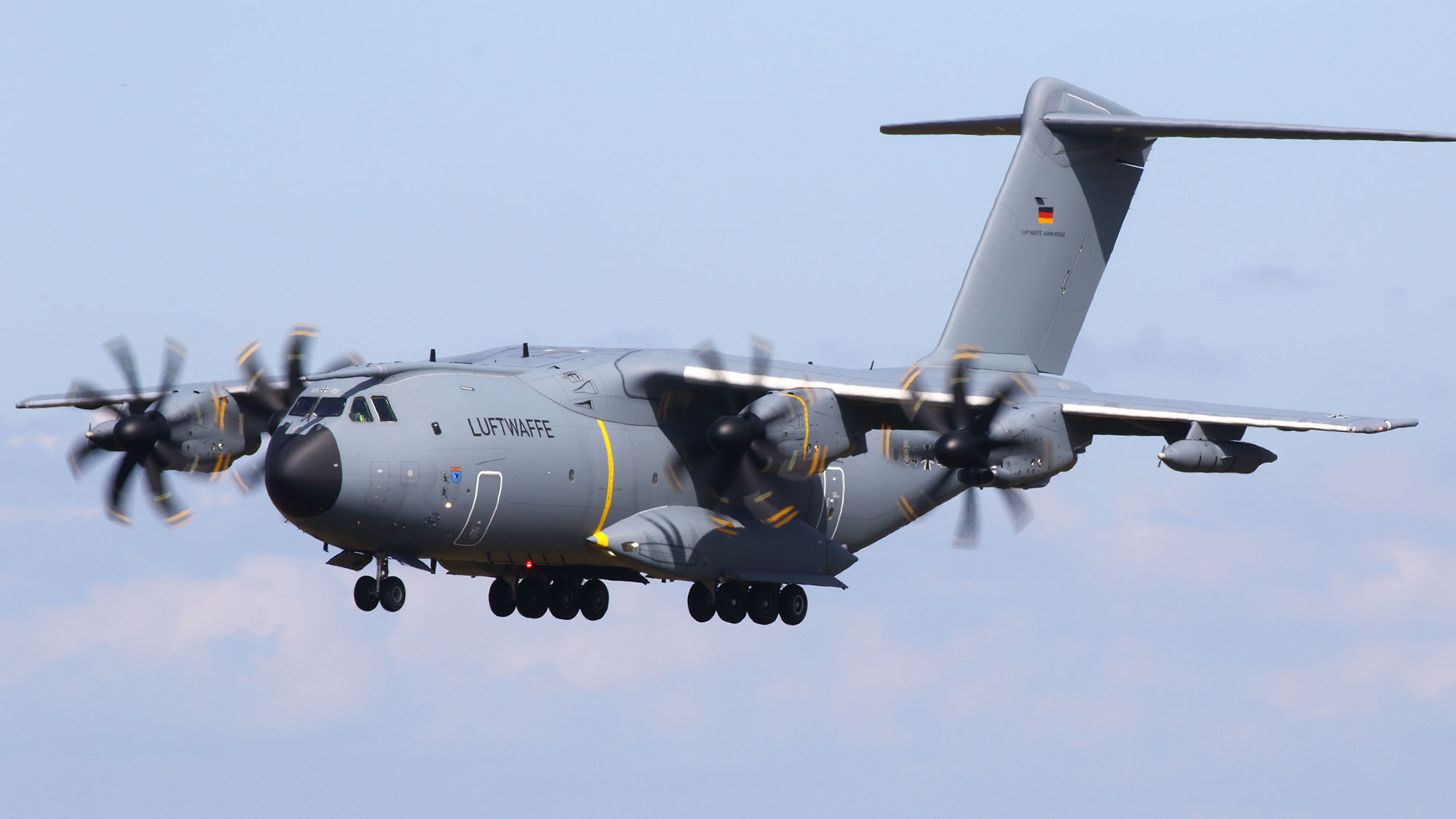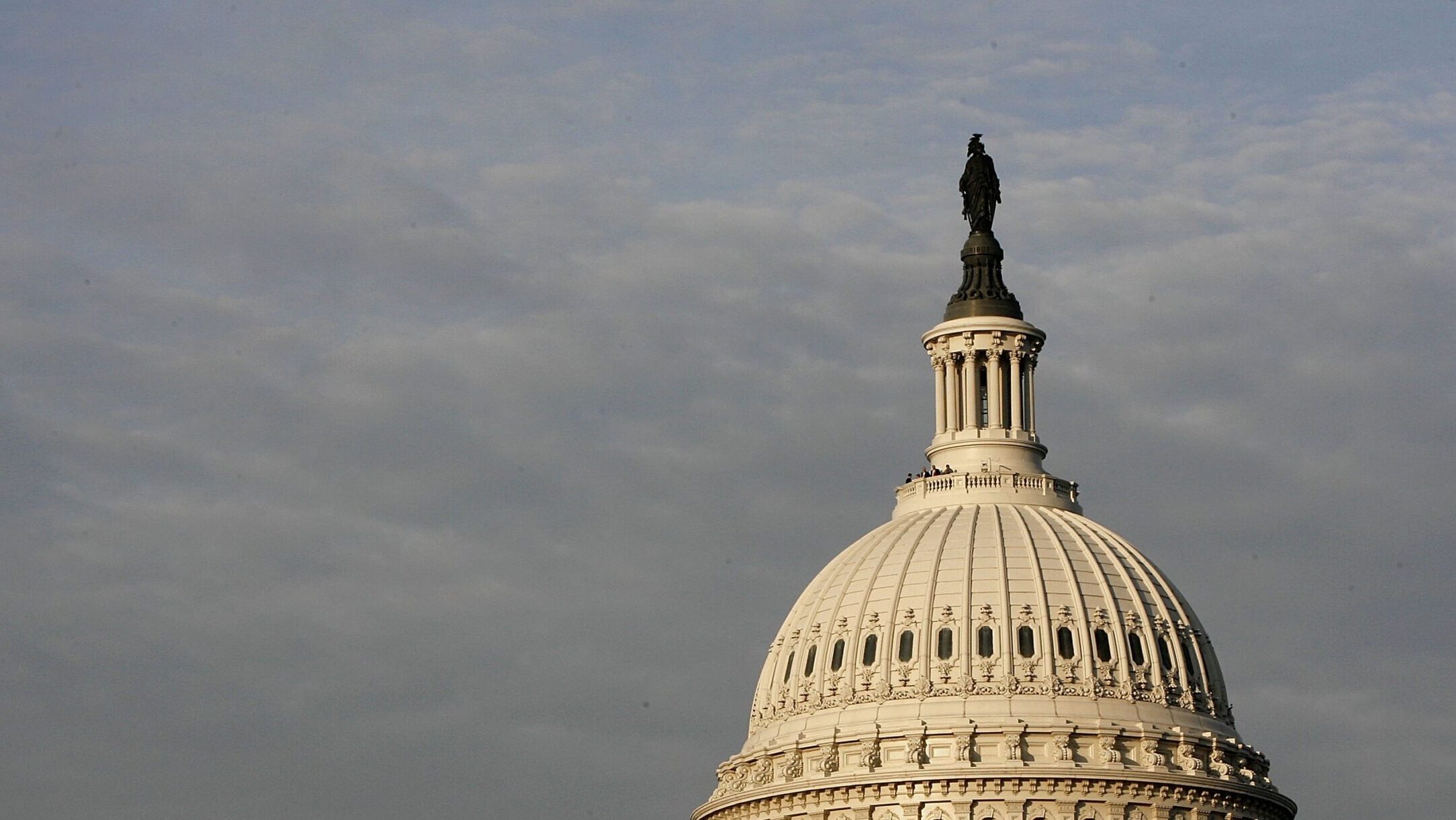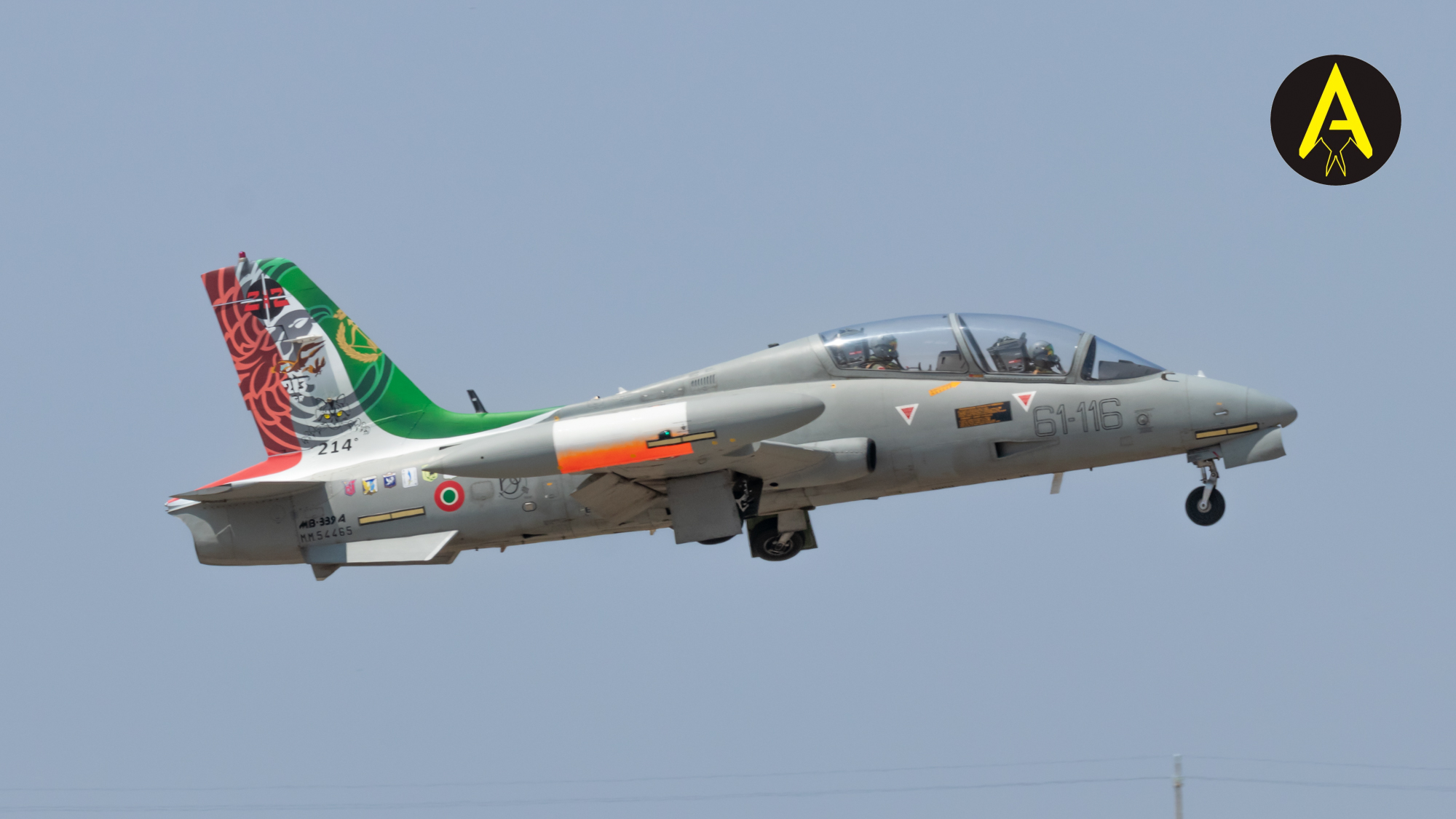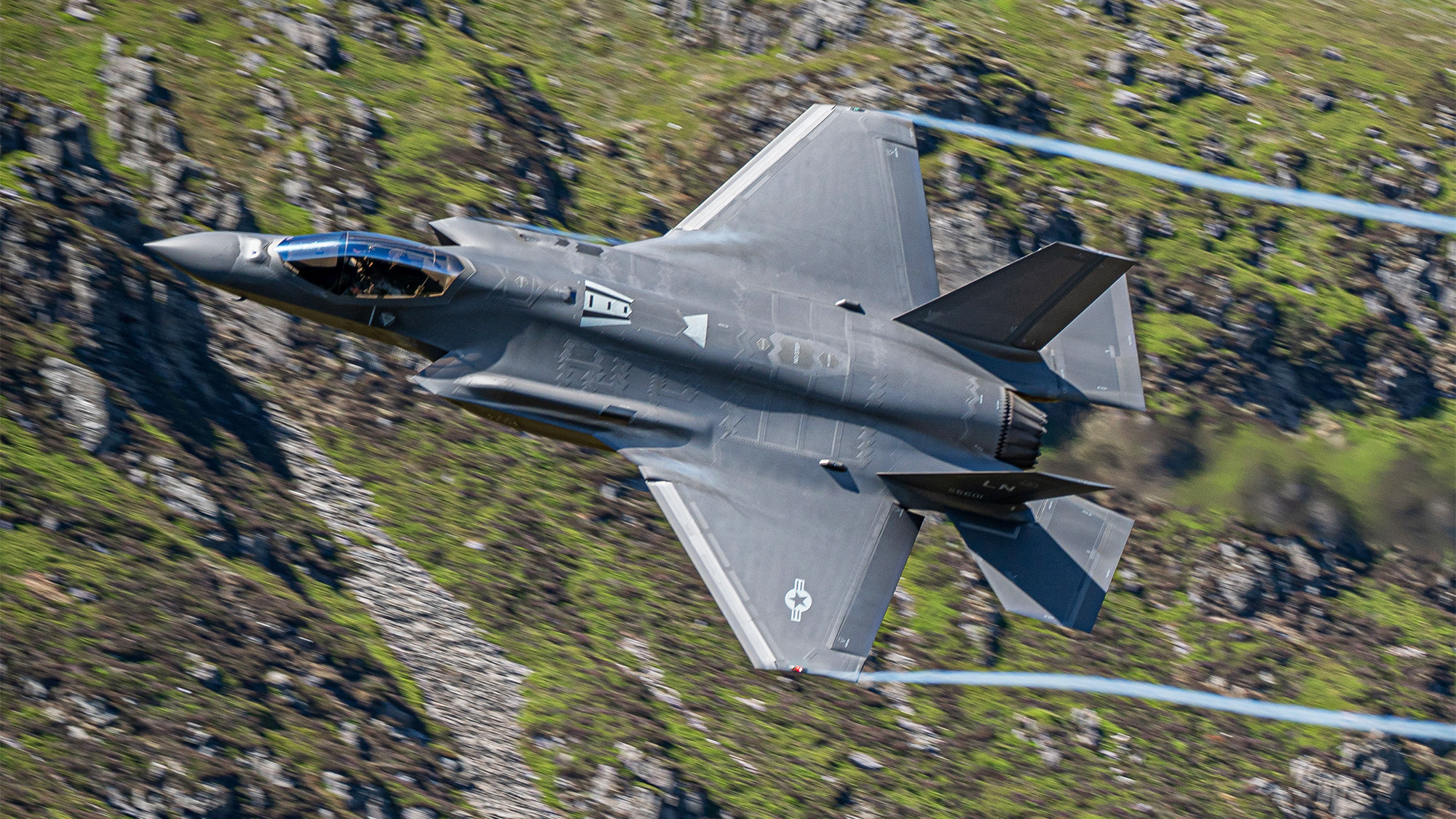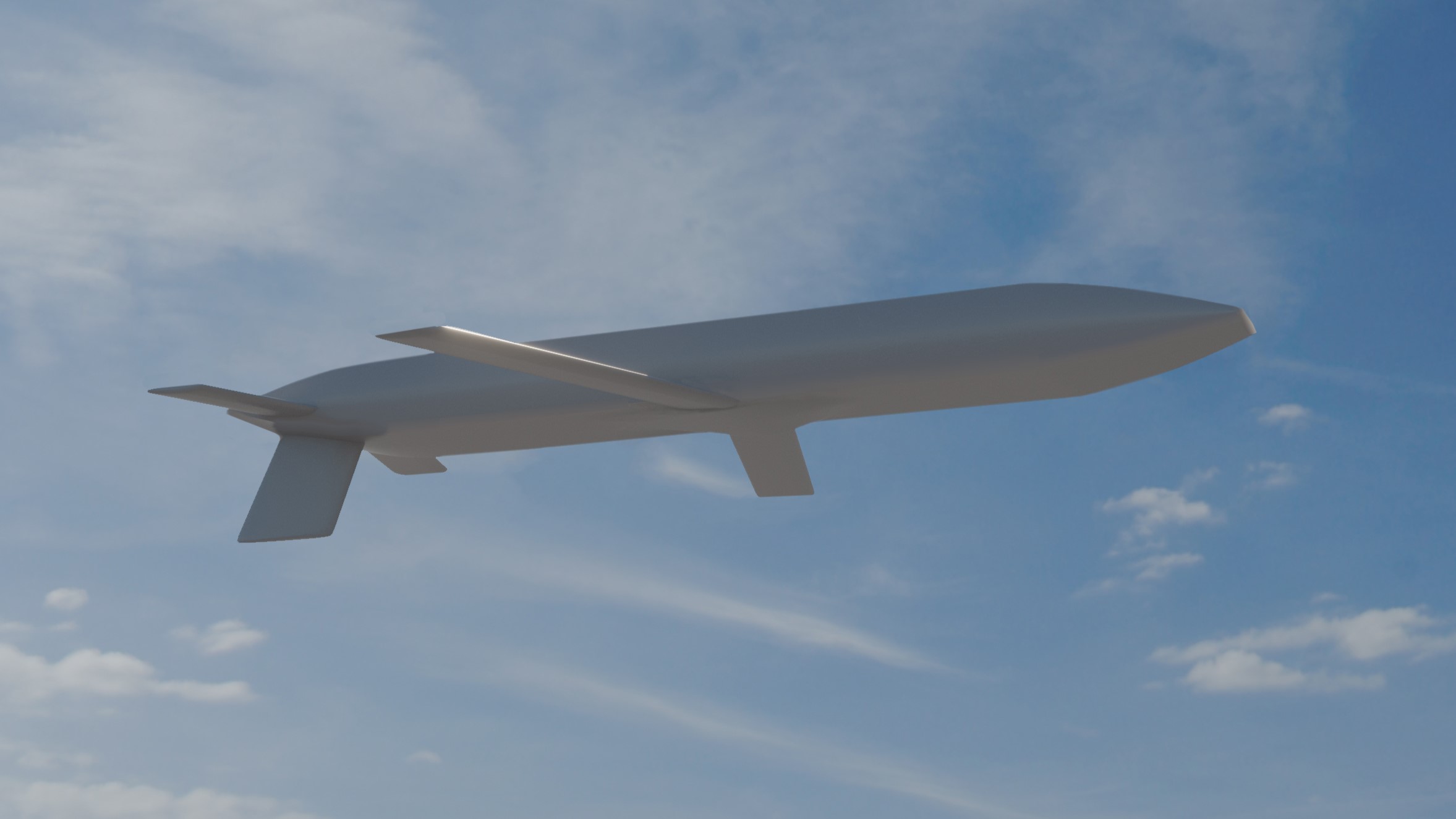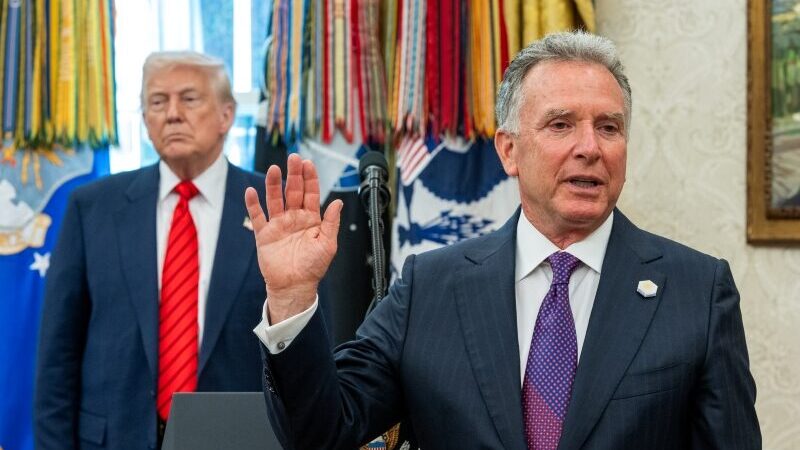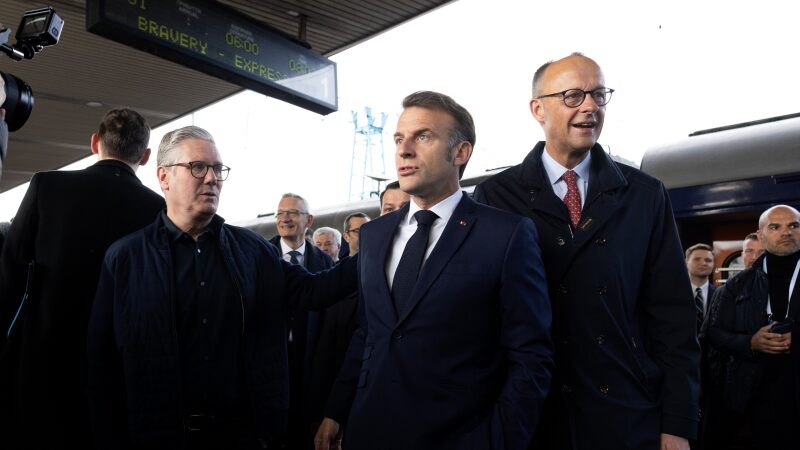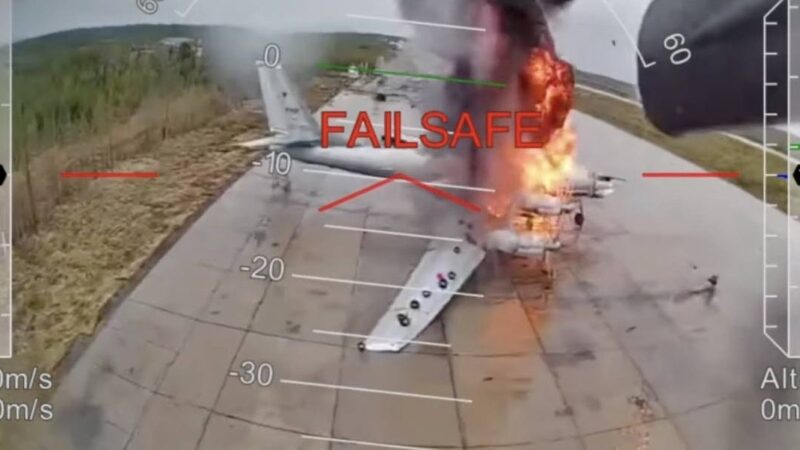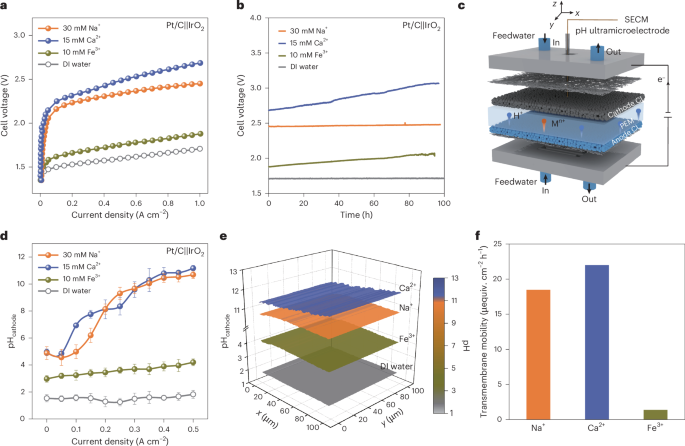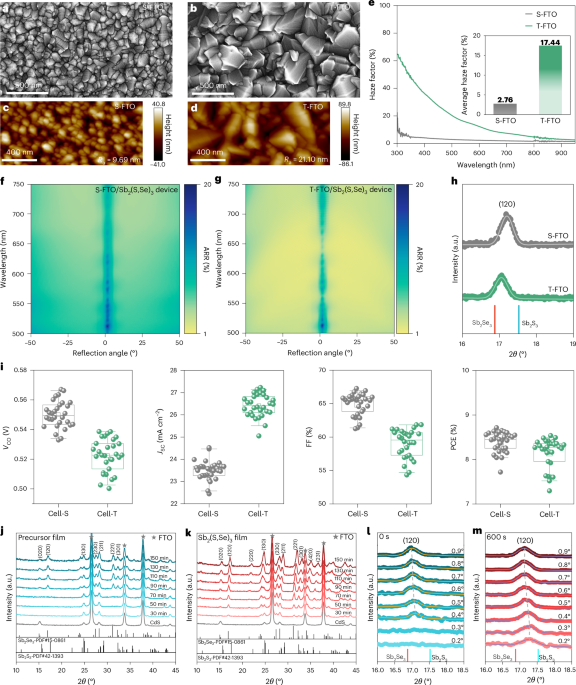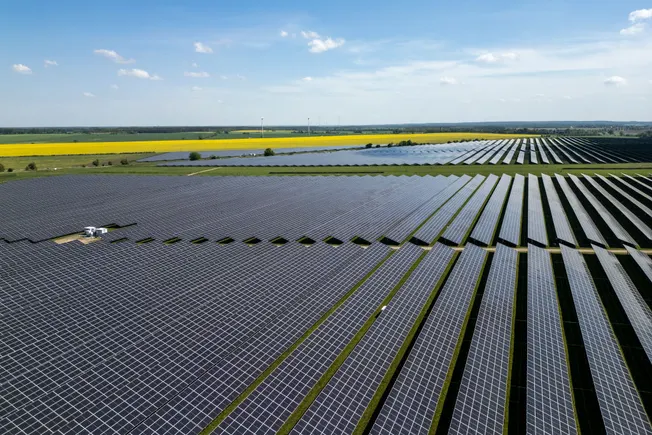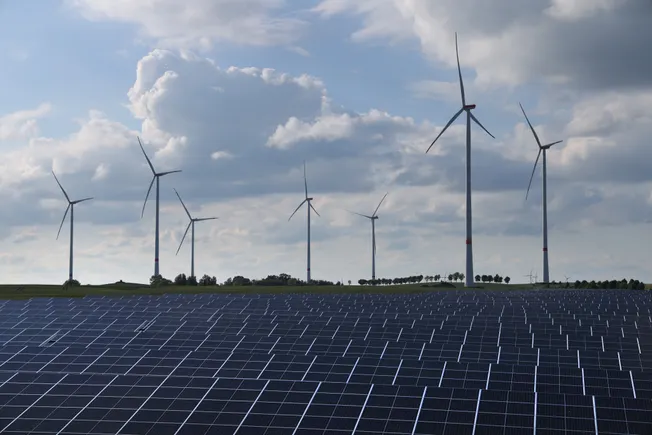Before lawmakers, Hegseth refuses to disclose cost, schedule to convert Qatari jet to Air Force One
The secretary of defense also defended cuts to the E-7 Wedgetail, Constellation-class frigate, and Ukraine assistance funds during the congressional hearing.


U.S. President Donald J. Trump deplanes a VC-25A of the 89th Airlift Wing, Presidential Airlift Group, Andrews Air Force Base, Maryland on Selfridge Air National Guard Base, Michigan, April 29, 2025. (U.S. Air National Guard photo by Senior Airman Nathan Wingate)
WASHINGTON — Defense Secretary Pete Hegseth refused to provide information to lawmakers about the Trump administration’s plan to turn a Boeing 747 previously owned by the Qatari royal family into a new Air Force One plane during a congressional panel today, frustrating Democrats who pointed out such details are public for the actual Air Force One program.
During an appearance in front of the Senate Appropriations defense subcommittee, Hegseth repeatedly declined to comment on the price of upgrading the Qatari plane and when it would be delivered to be used as a presidential transport aircraft.
“That cannot be revealed in this setting,” Hegseth said when asked about the cost of the effort by Sen. Jack Reed, D-R.I.
“Why can’t it be revealed in this setting?” asked Reed, who also serves as the ranking Democrat on the Senate Armed Services Committee. “This is the appropriations committee of the United States Senate. We appropriate the money that you will spend after it’s authorized by my committee, and you cannot tell us how much the contract is for.”
“You will have that number, senator,” Hegseth said.
“We want it now. The contract has been signed, correct?” Reed asked, referring to media reports that L3Harris has received a contract to do the overhaul work on the Qatari plane.
“Nothing on that front, that I’m aware of, is being executed,” Hegseth said.
In response to a question about whether Hegseth could disclose the delivery date for the planes that are part of the existing Air Force One program — known formally as VC-25B — the defense secretary said a “stop-gap alternative” to the existing VC-25B program was needed due to continued delays on the Boeing program.
“What you’ve just said is that the Boeing information was public knowledge: the delivery date, the cost, the cost overruns,” Reed said. “But this [information related to the Qatari jet] is not, because this is not only a bad deal for the Republic, it is gratifying the presidency. That’s all it is.”
President Donald Trump was intimately involved in the brokering of the VC-25B contract with Boeing, tweeting in 2016 as president-elect that estimated costs were too expensive. After being sworn in as president in 2017, he personally negotiated the $3.9 billion deal with Boeing’s chief executive.
In a later exchange at the hearing today, Sen. Chris Murphy, D-Conn., pointed out that the previous Trump administration put out a press release for the VC-25B deal and questioned why the current agreement was being kept secret.
“I wasn’t involved in that previous administration decision, but we’re happy to take a look,” Hegseth said.
RELATED: Turning Qatari jet into Air Force One would cost ‘less than $400 million,’ Air Force secretary says
Citing statements from Air Force officials that the first VC-25B could be delivered before 2028, Murphy asked whether it was a wise use of taxpayer funds “to spend upwards of a billion dollars of a plane” that could end up only being used for a couple months before being transferred to Trump for his presidential library.
“There’s also been delay after delay after delay on the Boeing side, so I don’t know that’s a firm fixed date, that yet, unfortunately, can be counted on,” Hegseth responded.
One piece of information that Hegseth would confirm in a public setting is that the United States and Qatar have not yet signed a memorandum of understanding with Qatar about the plane’s transfer, despite a Pentagon announcement in May that Hegseth had “accepted” the plane. According to media reports, Qatar has sought an agreement that would spell out that the Trump administration initiated the deal and that Doha is not responsible for future transfers of the plane.
Wedgetail, Constellation And Ukraine
Beyond the Air Force One program, lawmakers repeatedly asked Hegseth for clarity on key weapons programs including the E-7 Wedgetail and Constellation-class frigate. Hegseth previously suggested the Pentagon was moving away from the Wedgetail, an early warning and aerial target tracking aircraft, and budget documents obtained by Breaking Defense show no procurement dollars for the new frigate.
RELATED: Hegseth says DoD reviewing E-7 Wedgetail program amid move to space
Hegseth said the department had to make “difficult choices” during this year’s budget submission and ultimately found that the Wedgetail was “late, more expensive and gold plated.”
The department appears to have settled on using the Navy’s E-2D Hawkeye as a stopgap for the air moving target indicator mission before moving toward a space-based capability.
“We do have in the budget $150 million in FY26 for a joint expeditionary E-2D unit with five dedicated E-2Ds, and the budget also funds four additional E-2Ds to fill the near term gap at $1.4 billion,” Bryn Woollacott MacDonnell, who is performing the role of Pentagon comptroller, testified.
On the Constellation-class, Hegseth pointed to a spike in program delays caused by the Navy’s decision to make extensive modifications to the original design, the FREMM frigate used by the Italian and French navies.
“I’m not saying that it’s all the fault of the shipyard. There are many ways in which modifications were made that changed an existing design so extensively that it led to a ship that was not even capable of the original mission it was supposed to execute,” he said. “Our job is to make tough choices on some platforms like that, that may not be funded the way they were in the past.”
In a departure from Tuesday’s House Appropriations Committee hearing, senators on both sides of the aisle grilled Hegseth on US support to Ukraine, while also voicing concerns that the US is hurting its standing on the world stage by not backing Kyiv.
“Most of us on this panel believe that Russia’s war in Ukraine, its alignment with the aims of other US adversaries and its eventual outcome are profoundly important to America’s interests and offer more than just a glimpse into the future of warfare,” said Senate Appropriations defense subcommittee Chairman Mitch McConnell, R-Ky.
“I don’t see funding for the Ukraine Security Assistance Initiative in your budget request,” he later added. “Is the administration’s view that terminated security assistance to Ukraine will make lasting peace?”
The former Senate majority leader later asked Hegseth to identify who was the aggressor and who is the victim in the Russia-Ukraine military conflict and “which side do you want to win.”
Hegseth identified Russia as the “aggressor” but punted on the latter question.
“This president is committed to peace in that conflict,” Hegseth responded. “Ultimately, peace serves our national interests, and we think the interests of both parties, even if that outcome will not be preferable to many in this room and many in our country.”
In a separate exchange, Connecticut Sen. Chris Coons, the subcommittee’s top Democrat, pressed Hegseth on why the administration is not using the remaining $3.8 billion in Presidential Drawdown Authority to send additional air defense capabilities to Ukraine.
“We should not be pursuing a cease fire and a negotiated resolution to the war in Ukraine at any cost,” Coons said. “Peace through strength means actually using our strength, continuing to support Ukraine and securing a lasting peace. Putin will only stop when we stop him, and the best way to stop him is indeed through a stronger NATO.”
While Hegseth did not directly respond to why the administration has chosen not to commit to sending additional weapons to Ukraine since coming to power in January, he said the flow of weapons from earlier commitments is continuing.










